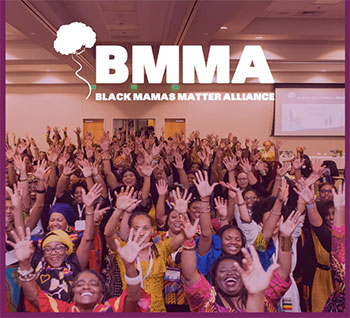General
Want to dismantle Black maternal health disparities? Listen to Black women
 What can any of us do to address the horrifying fact that Black women in the U.S. are more than three times as likely to die in childbirth and face much higher pregnancy-related complications than white women?
What can any of us do to address the horrifying fact that Black women in the U.S. are more than three times as likely to die in childbirth and face much higher pregnancy-related complications than white women?
Listen to Black women. And trust Black women.
“We need to do things differently as it relates to public health and medicine,” said Angela Doyinsola Aina, co-founder and executive director of the Black Mamas Matter Alliance, during the Monday afternoon Annual Meeting session, “Black Mamas Matter: Mistreatment and Violence Against Birthing Persons.”
She pointed out that maternal mortality has been steadily increasing in the U.S. since the 1990s, and the disparity in maternal morbidity and mortality between Black and white women continues to widen.
The session took a close look at the need to address obstetric violence, which includes forced medical intervention and dehumanizing or rude treatment. All session presenters are members of the Atlanta-based Black Mamas Matter Alliance, which works to change policy, advance care for black mothers, cultivate research to improve Black maternal health, and “redirect and reframe the conversation on Black maternal health and amplify the voices of Black mamas.”
 Presenter Breana Lipscomb of the Center for Reproductive Rights explained how obstetric violence can manifest via disregard for a woman’s needs and pain, denial of treatment during childbirth, unnecessary use of medication and coerced medical interventions, among others. In 2019, the alliance submitted recommendations to an international panel on addressing mistreatment and violence against people seeking birth services.
Presenter Breana Lipscomb of the Center for Reproductive Rights explained how obstetric violence can manifest via disregard for a woman’s needs and pain, denial of treatment during childbirth, unnecessary use of medication and coerced medical interventions, among others. In 2019, the alliance submitted recommendations to an international panel on addressing mistreatment and violence against people seeking birth services.
Among the recommendations: recognize poverty is a key factor in violations during childbirth; promote human rights-based education on respectful maternity care; and fund and support doulas, community workers and other paraprofessionals who promote respectful care during birth.
 Inas Madhi, a birth equity research and training scholar, told attendees about the importance of providing trauma-informed care for Black sexual abuse survivors. The barriers to doing so are numerous.
Inas Madhi, a birth equity research and training scholar, told attendees about the importance of providing trauma-informed care for Black sexual abuse survivors. The barriers to doing so are numerous.
“There is always the narrative of how Black women show up in care settings,” Madhi said. “The idea that Black women are aggressive, that Black women want to be in control, that they are combative, that they are not interested in going along with care recommendations."
Not only can we all work to dismantle those harmful stereotypes, we can also work together to help overcome barriers to respectful reproductive care, said Sayida Peprah, a clinical psychologist and doula who highlighted the Battling Over Birth survey, a 2016 look into the experiences of 100 women in California who described difficulties.
“Overall, most of the women reported that birth felt like a battle to them, that it was a fight somehow,” Peprah said. “There were a lot of barriers.”
Those included being reprimanded for pushing. One teen mom had her leg slapped repeatedly by a nurse for trying to push during birth because the doctor was not yet in the birthing room.
“We need to provide culturally relevant trauma-informed care disentangled from racist beliefs,” said Peprah, who advocates for improved access to doulas who can provide supportive care to women. Research has shown doula care can lead to decreased C-section rates, increased breastfeeding and other improved outcomes.
And when the COVID-19 pandemic suddenly shut down doulas’ access to women’s birthing rooms in hospitals, Black Women Birthing Justice, Diversity Uplifts Inc., and Frontline Doulas came up with a hotline program that links women with doulas via phone.
“One of the things that Black women would say we are known best for is that we can make the best out of very minimal,” Peprah said. “We’ve had to do it for the hundreds of years we’ve been in this country.”
Keep up with the Black Mamas Matter Alliance and support their reproductive justice work by signing up for their newsletter and checking out their resources posted at blackmamasmatter.org. Catch Aina's presentation on intimate partner violence and Black women's reproductive and maternal health outcomes during the Tuesday Annual Meeting session 4268, "Utilizing Black Feminism & Reproductive Justice to Address Intimate Partner Violence for African American Women," from 5-6:30 p.m. MT
Photos, from top: Black Mamas Matter Alliance during a pre-pandemic gathering, Breana Lipscomb and Inas Madhi.


